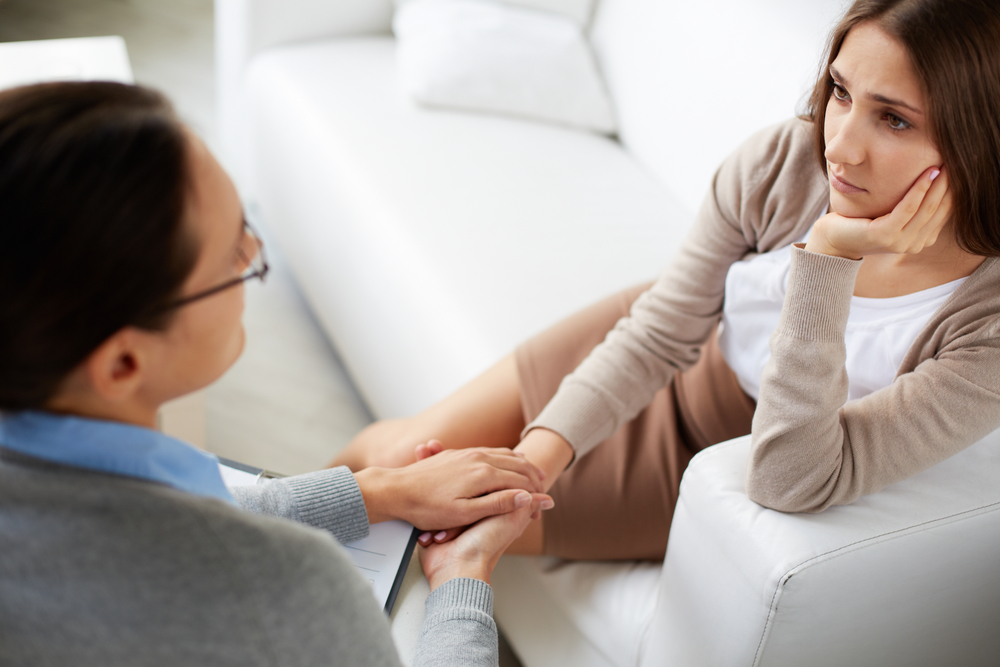Recognizing the signs of a toxic relationship can be life-changing, especially for those navigating the fragile path to addiction recovery. Toxic relationships are alarmingly common, with studies showing that nearly 84% of women and 75% of men have endured some form of emotional abuse in their lives. These unhealthy dynamics can hinder progress in recovery and intensify feelings of stress, shame, or codependence.
At Origins Texas Recovery in South Padre Island, Texas, we understand how vital it is to identify and address these harmful bonds as part of the healing process. Offering detox, residential treatment, outpatient care, and dual diagnosis treatment at multiple locations throughout Texas, we’re here to help you break free from toxic cycles and rebuild a foundation of strength and self-worth. Recognizing the warning signs is the first step toward freedom—so let’s explore what they are.
Understanding Toxic Relationships
Defining Toxicity in Relationships
Toxic relationships are characterized by behaviors that are detrimental to our emotional and psychological health. These relationships may involve manipulation, resentment, or conflict, leading us to feel unsupported or invalidated.
While conflict is a natural aspect of any relationship, toxicity involves a consistent pattern of negative interactions that can undermine one’s sense of self-worth. Recognizing these patterns can be the first step toward addressing a toxic person and rectifying unhealthy dynamics. It’s important to note that toxicity can manifest in various forms, from overt verbal abuse to more subtle forms of emotional manipulation, such as gaslighting. Understanding the nuances of these behaviors can empower individuals to identify when they are in a toxic environment or dealing with a toxic partner, allowing them to take proactive steps toward change.
At Origins Texas Recovery, we provide expert care and compassionate support for you or a loved one. Reach out today to begin the journey to lasting recovery.
The Impact of Toxic Relationships on Mental Well-Being
The implications of toxic relationships extend far beyond immediate emotional responses. Prolonged exposure can contribute to mental health issues such as anxiety, depression, and low self-esteem. The continuous stress associated with these interactions can provoke physiological symptoms as well.
Love and support should be the foundation of any meaningful relationship, and when that foundation is compromised, individuals often grapple with feelings of confusion and helplessness. The more one endures a toxic relationship, the more challenging it becomes to break free or seek help.

The cycle of toxicity can create a sense of isolation, as individuals may withdraw from friends and family, fearing judgment or misunderstanding. This isolation can exacerbate feelings of loneliness and despair, making it even more difficult to escape abusive behavior. Recognizing these signs is crucial, as it can lead to seeking support from trusted individuals or professionals who can provide guidance and resources for healing and recovery.
Recognizing the Signs of a Toxic Relationship
Toxic behavior from a partner can have a terrible impact on overall mental health, especially if you’re unsure if you’re in an abusive relationship.
Trust is paramount, yet toxic relationships often feature a recurring theme of dishonesty. Regular lies and deception contribute to a breakdown of trust, making it increasingly difficult to maintain a healthy connection.
When one partner feels compelled to lie or withhold information for fear of reaction, the foundation of the relationship weakens, paving the way for further complications. This cycle of dishonesty can create a chasm of distrust, where each partner may begin to question the other’s motives and fidelity. As lies accumulate, the emotional toll can lead to a pervasive sense of anxiety and insecurity, further complicating connection and healthy communication.
One of the most telling signs of a toxic relationship is a persistent pattern of criticism. When your partner frequently points out your flaws or belittles your achievements, it reflects a lack of respect and appreciation for who you are.
While constructive feedback is healthy, relentless negativity serves only to erode your self-worth. Healthy partners nurture and uplift one another, rather than tear each other down. This kind of criticism can manifest in various forms, from subtle remarks to overt insults, and can create a climate of fear where one feels constantly under scrutiny. Over time, this can lead to a significant decline in self-esteem, making it challenging to engage in activities that once brought joy or fulfillment.
A key foundation for any healthy relationship is mutual respect. When one partner habitually disregards established boundaries, it can lead to feelings of violation and resentment. Without respect, intimacy can suffer, and the relationship dynamic becomes skewed.
Establishing and honoring boundaries signifies trust and care. A lack of respect often results in one partner feeling exploited or unseen, leading to further discord. This disregard can manifest in various ways, such as ignoring personal space, dismissing opinions, or failing to acknowledge the other person’s needs. Over time, this can foster a sense of helplessness, as one partner may feel they have no voice or agency in the relationship.
A toxic relationship often features excessive jealousy, where one partner seeks to control aspects of the other’s life, including friendships, personal choices, and daily activities. This possessiveness can quickly escalate into controlling behavior that restricts freedom.
Healthy relationships encourage independence and individuality, while toxic relationships often blur these lines, cultivating codependence and resentment instead. The controlling partner may use jealousy as a justification for their behavior, framing it as a sign of love or concern, which can further entrap the other partner in a cycle of guilt and obligation. This dynamic can lead to isolation, as the controlled partner may find themselves distanced from friends and family, further solidifying the toxic bond.
 Emotional manipulation can often manifest through gaslighting, where one partner makes the other question their own perceptions or reality. This tactic of manipulation can leave individuals feeling invalidated and confused about their thoughts and feelings.
Emotional manipulation can often manifest through gaslighting, where one partner makes the other question their own perceptions or reality. This tactic of manipulation can leave individuals feeling invalidated and confused about their thoughts and feelings.
Being made to feel guilty for expressing one’s feelings is another form of emotional manipulation. This behavior significantly damages trust and openness in a relationship, leading to further disconnection. Gaslighting can be particularly insidious, as it often leaves the victim doubting their own sanity or memory. Over time, this can create a cycle of dependency where the victim feels they need to rely on the manipulator for a sense of reality, further entrenching the toxic dynamic.
Constant drama or negativity can be a significant hallmark of toxicity. An environment where arguments or conflicts arise incessantly can drain emotional energy and create a sense of chaos.
This pattern makes it challenging for individuals to feel secure or safe in their relationship. Instead, healthy relationships create a supportive space that fosters growth and positivity. The relentless cycle of conflict can lead to emotional burnout, where one or both partners feel exhausted and demoralized. This atmosphere of turmoil can overshadow any moments of joy or connection, making it difficult to remember what initially brought the couple together.
In toxicity, dependence can morph into an unhealthy attachment, where one partner feels they cannot function without the other. This co-dependence often dismisses individual needs and promotes imbalance.
While it’s natural to desire closeness in relationships, an excessive reliance on a partner can stifle personal growth and self-discovery, leading to potential issues down the line. The co-dependent partner may sacrifice their own interests, friendships, and wellness to maintain the relationship, which can lead to feelings of resentment and frustration. This imbalance not only affects the individuals involved but can also ripple out to impact their wider social circles, creating a toxic environment that extends beyond the couple into other relationships.
A healthy relationship thrives on balance, where both partners contribute equally to the relationship. In toxic dynamics, the distanced scale often leaves one partner feeling exploited and unappreciated.
The balance must exist for a relationship to flourish. If one person is carrying the majority of the emotional labor, it breeds resentment and disconnection. This imbalance can manifest in various ways, such as one partner always being the one to initiate plans, provide emotional support, or make sacrifices. Over time, this can lead to feelings of burnout and frustration, as the neglected partner may feel invisible or undervalued, further straining the relationship.
Experiencing a sense of fear or anxiety in a relationship is a clear indicator of toxicity. This unease often arises from the unpredictability of a partner’s reactions, leading one to feel they must tread lightly to avoid conflict.
Navigating such a relationship can be emotionally exhausting, leading to heightened stress levels and diminishing mental health over time. The constant need to monitor one’s words and actions can create an environment of tension, stifling genuine emotions. This lack of authenticity can prevent meaningful communication, leaving both partners feeling isolated and misunderstood.
If interactions with your partner consistently leave you feeling drained or emotionally depleted, it’s a strong signal that the relationship may be toxic. They should inspire and energize you, not sap your vitality.
Emotional exhaustion is a strong indication of unhealthy dynamics; recognizing it is crucial to prioritizing self-care and healing. This feeling of depletion can stem from constant conflict, emotional manipulation, or a lack of support. Over time, individuals may find themselves withdrawing from social activities or neglecting their own needs, further perpetuating the cycle of toxicity and emotional fatigue.
Verbal and physical abuse are among the most evident and damaging signs of a toxic relationship. Physical abuse includes acts of violence like hitting, pushing, or restraining, while verbal abuse consists of harmful words or actions such as insults, threats, or constant criticism. Both forms are meant to control or demean the other person, stripping away their sense of safety and self-worth.
Physical harm may increase stress levels while compounding feelings of hopelessness and fear. Verbal attacks often deepen self-doubt and emotional wounds, both of which may drive someone toward unhealthy coping mechanisms, such as substance use.
Moving Forward from a Toxic Relationship
If you recognize any of these signs in your relationship, it’s important to take action to protect yourself. Here are some steps you can take:
Setting boundaries is an important part of any healthy relationship. If your partner is not respecting your boundaries, it’s time to have a conversation about what is and isn’t acceptable. If your partner truly loves and respects you and your relationship, they will appreciate you speaking up and actively listen to your concerns. However, a toxic partner will not and that should be another sign you’re spending time with the the wrong person.
Talking to a trusted friend or family member can be helpful when dealing with a toxic relationship. It’s important to have a support system in place to help you through this difficult time. Having a support network of people who care about you can help you put your relationship in perspective. If you feel supported by the people in your support network you should also feel genuine love and support from your partner. Your friends and family members can help you identify if you are in a toxic relationship.
Healing from a toxic relationship requires a commitment to self-care. Prioritizing activities that foster emotional, mental, and physical wellness is essential for recovering from the effects of toxicity. Take the time to let yourself heal by doing the things that make you feel better about yourself. Spend time relaxing and enjoying activities that bring you pride and self-esteem.
Therapy can be a helpful tool for working through relationship issues. A therapist can provide a safe space to explore your feelings and help you develop strategies for dealing with a toxic relationship. They can help you identify unhealthy relationship patterns and guide you on how to move forward. There is tremendous strength in seeking help from a professional therapist.
If you’re in an abusive relationship, creating a safety plan is important. This plan may include finding a safe place to stay, contacting a domestic violence hotline, or seeking legal protection. Don’t feel stuck, there are many ways to escape a toxic relationship and if you’re struggling with getting help from friends or family members, seeking professional help is always an option.
If the toxic behavior continues even after discussing the toxic behavior with your partner, it may be time to consider leaving the relationship. This can be a difficult decision, but remember that your safety and mental wellness should always come first. Don’t ignore toxic relationship signs, these are crucial warning signals that you have an abusive partner and should leave the relationship.
Establishing Healthy Boundaries in Future Relationships
Finally, establishing healthy boundaries in future relationships is crucial for ensuring emotional well-being. Discussing boundaries openly from the outset will set clear expectations for mutual respect and understanding.
Learning from past experiences enables individuals to forge healthier, more fulfilling relationships that prioritize emotional safety and support.

Recognizing the signs of toxicity is essential for maintaining mental health and overall well-being. By understanding these behaviors, one can take informed steps toward healthier relationships, paving the way for a brighter future.
Contact Hannah’s House at Origins Texas Today
At Hannah’s House, we understand how toxic relationships can impact mental health and addiction recovery. Our team of compassionate professionals is here to provide support, guidance, and resources for women who are struggling with addiction and unhealthy relationships. Contact us today to learn more about our gender-separate program and how we can help.
Remember, you deserve to be in a healthy and supportive relationship. If you are experiencing toxicity in your current relationship, take action to protect yourself and seek the help you need.
Hannah’s House is a well-known care provider offering a range of treatment programs targeting the recovery from substance use, mental health issues, and beyond. Our primary mission is to provide a clear path to a life of healing and restoration. We offer renowned clinical care for addiction and have the compassion and professional expertise to guide you toward lasting sobriety. For more information about the stages of alcoholism in women or to learn about our programs, call us today.

